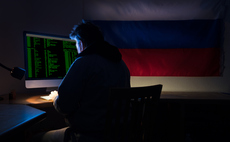The Cyber Threat Intelligence Integration Center to pool all information about online threats
Security experts have welcomed the decision by the US government to create an agency dedicated to fighting computer hackers and cyber attacks. The Cyber Threat Intelligence Integration Center (C...
To continue reading this article...
Join Computing
- Unlimited access to real-time news, analysis and opinion from the technology industry
- Receive important and breaking news in our daily newsletter
- Be the first to hear about our events and awards programmes
- Join live member only interviews with IT leaders at the ‘IT Lounge’; your chance to ask your burning tech questions and have them answered
- Access to the Computing Delta hub providing market intelligence and research
- Receive our members-only newsletter with exclusive opinion pieces from senior IT Leaders






















